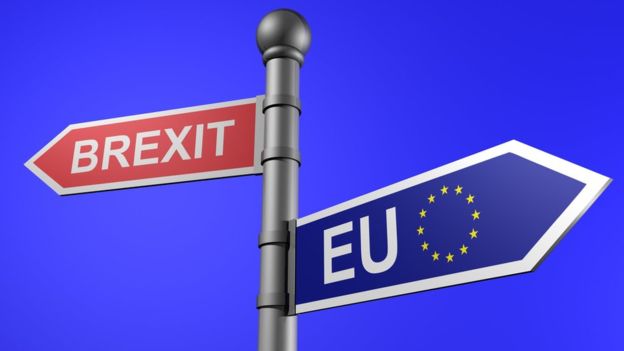Kevin Bean looks at the shameful official left and the split between Jeremy Corbyn and John McDonnell over the Ukraine war
The total collapse of the official Labour left has been an established fact for some time now. Sir Keir Starmer and the openly pro-capitalist Labour right’s ideological and political control is unquestioned.
Few blink an eye when notorious defectors like former MPs Luciana Berger and Mike Gapes are welcomed back with open arms and given yet another platform to repeat their lies about the ‘anti-Semitism’ of the left. Whether it be meekly tailing behind the Tories on the war in Ukraine or talking tough on small boats and migration policy, Labour has moved decisively to the right, revealing its true role as British capitalism’s reliable second eleven.
The Labour right’s absolute control over the party machine is demonstrated almost weekly by the imposition of leadership loyalists as election candidates and the continued expulsions and purges of Constituency Labour Parties. It is hardly news any more when a CLP is overruled and a safe leadership clone is installed as the Labour candidate. However, the future of Jeremy Corbyn as MP for Islington North still has some potential to be something of a cause célèbre: Starmer has made it clear that Corbyn will not be a Labour candidate in the next election. Rumours continue to circulate that he will stand as an independent and many hope that by doing so he can act as a rallying point for the scattered and demoralised left, and perhaps even provide the launchpad for a new left party.
Whatever Corbyn’s individual decision about his parliamentary future, this hopeful focus on him has more than a little of wishful thinking about it. He does have a strong local following and by all accounts is a good constituency MP who might win against an official candidate, especially if she/he is a typical Starmerite with all the political personality and principle of a cardboard cut-out. But what happens then? Where do Corbyn and, more importantly, the left in general go after that? Given his record as Labour leader, we already know the answer to that question. Far too many people are still prepared to make excuses for the retreats, the compromises and the downright betrayals carried out by the Corbyn leadership. In conceding to the right on the big lie that equated the left with anti-Semitism, and in his willingness to sacrifice even his long-standing comrades to appease the pro-capitalist right, Corbyn revealed the vacillation and the lack of political principle that are the true face of the official Labour left.
These are not simply personal failings or lack of political courage, but are rooted in the sub-left reformism of Corbyn, McDonnell and company. If your politics are based on achieving ‘socialism’ through the election of a series of radical Labour governments, preserving Labour as a political instrument is paramount. Keeping this broad church together inevitably means the left has to make concessions to the pro-capitalist right: at whatever political cost, the politics of the Labour left historically has been subordinated to that of the Labour right and will continue to be so. As long as we fail to understand and explain that fundamental relationship between the Labour left and right, illusions in the capacity of the official left will only continue to demobilise and demoralise those activists who still maintain some residual faith in Corbyn and Corbynism.
Although there is now considerable personal and political distance between Corbyn and his former comrades in the Socialist Campaign Group, this fundamental commitment to Labour as presently constituted unites them and, as we have seen in practice, becomes an unconditional and uncritical Labour loyalism.
Nato ‘socialists’
If you want to see how this is now playing out, just look at how the official Labour left is responding to the war in Ukraine. It all began with the pitiful capitulation by the leading members of the SCG to the threats of the Starmer leadership. Remember how last year they withdrew their public support for a very weak, pacifistic Stop the War statement and pulled out of speaking at a rally?[1] That set the pattern for the months that followed.
While Corbyn has continued to publicly campaign and express his pacifist opposition to the war, his former comrades in the SCG have either remained eerily silent or taken a very different road altogether.[2] Despite claiming that both he and Corbyn are fighting for peace, John McDonnell has lined up solidly behind Nato and supported the imperialist war effort in Ukraine. Using the bogus language of ‘self-determination’, McDonnell has joined in the warmongering by supporting the sending of arms to Ukraine.[3] He and the rest of the Nato ‘socialists’ in the Ukraine Solidarity Campaign have adopted an openly social-imperialist position similar to that of Starmer and the rest of the leadership.
The USC has murky origins in a CIA-backed organisation set up during the latter stage of the cold war in the 1980s. Throughout the proxy war in Ukraine between the United States plus its allies and Russia, the USC has acted as an agent of imperialism in the working class movement, consciously obscuring the role of Nato and dressing up an aggressive war in the rhetoric of internationalism.[4] Along with its outriders in ‘left’ groups, such as the Alliance for Workers’ Liberty and Anticapitalist Resistance, the leadership of the tame, official Labour left is playing a disgraceful part in politically disarming the workers’ movement and laying the ground for further disasters and betrayals.[5]
If you want to see where this leads, just consider the growing acceptance in the bourgeois media and amongst its political representatives that a major war involving the great powers is increasingly likely, if not inevitable. It is not just Marxists who locate the war in Ukraine in wider geopolitical terms as ultimately part of the US policy of containment directed towards China. Commentators in The Times, Financial Times and The Economist, for example, routinely speak of the implications of this strategy and the possibilities of a third world war over Taiwan.[6] Conservative peer Danny Finkelstein has even gone so far as to tell us we must be prepared to accept a nuclear war as a real strategic option![7]
If you want to see how the Labour leadership joins in the chorus, just look at this week’s Commons debate on the future direction of British foreign policy.[8] This discussion considered an updating of the Integrated Review, which outlines the main strategic aims of the British state and comes in the week when the consummation of the agreement of the US-UK-Australia ‘security pact’ (Aukus) marks a further ratcheting up of great-power rivalry.[9]
It will come as no surprise to hear Labour’s shadow foreign secretary, David Lammy, slavishly echo the Tories and boast that ‘defence’ spending was higher in percentage terms under the last Labour government that it is now under the Tories.[10] He performed well in the House, as did the other usual suspects on the Labour right eager to show to the bourgeoisie that the madness of the Corbyn period was well and truly past, and that Labour could now be relied on to pursue foreign and defence policies in the interests of both British and US imperialism. Given the historical record of the Labour Party and Labour governments from the time of World War I, this was no great shock either.
Missing in action
However, in this debate the tame Labour left was just as bad – remaining largely silent and raising no serious objections to the Tories or the line of the Labour leadership (although one SCG member did manage to ask a question about the BBC World Service!). Given the position that the SCG has adopted on the Ukraine war, this is no great surprise either: when it comes to voicing opposition to the foreign policy of British imperialism, they are very much missing in action here as well.
In the coming period questions of foreign policy – above all, the key issues of war and peace – will assume even greater political importance. Far from being the esoteric preserve of academic specialists or armchair strategists, as Nato’s proxy war in Ukraine and the energy crisis in Europe have shown, the foreign polices of the great powers have a direct impact on the lives of the working class.
Marxists have always argued for a distinctive working class approach to foreign policy and have campaigned for demands that reflect the interests of the working class internationally, not those of the capitalists, the diplomats and the generals. World War I and the split in the Second International in 1914 marked a decisive division in the working class movement, as the social-imperialist leaders rallied behind their own ruling classes and sent millions into the horrific slaughter of the trenches.
Obviously the current fissures within the official Labour left over Ukraine – primarily between the social-pacifism of Jeremy Corbyn and the Stop the War Coalition and the social-imperialism of John McDonnell and the Nato fellow travellers – do not have the same world-historical importance as the German Social Democratic Party’s vote for war credits in 1914. Jeremy Corbyn is nothing compared to Karl Liebknecht or Rosa Luxemburg: he is not even a centrist such as Karl Kautsky. No, he stands fully in the social-pacifist tradition of Keir Hardie, Ramsay MacDonald and George Lansbury. Banal phrases about peace, justice and disarmament cover for the complete absence of any meaningful strategy for socialism.
[1]. labourlist.org/2022/02/11-labour-mps-pull-signatures-from-stop-the-war-statement-after-whip-request; labourpartymarxists.org.uk/2022/03/11/spineless-response-to-the-ukraine-war.
[2]. development.morningstaronline.co.uk/article/f/saturday-join-us-morning-star-conference.
[3]. labourhub.org.uk/2023/02/21/the-ukrainian-question-for-socialists.
[4]. ‘A toxic operation’ Weekly Worker March 24 2022: weeklyworker.co.uk/worker/1388/a-toxic-operation; see also www.opendemocracy.net/en/odr/ukraine-solidarity-conference-lse-john-mcdonnell-nadia-whittome-labour.
[5]. www.theguardian.com/politics/2023/feb/26/labour-left-breaks-with-jeremy-corbyn-over-sending-weapons-to-ukraine.
[6]. www.economist.com/leaders/2023/03/09/how-to-avoid-war-over-taiwan.
[7]. www.thetimes.co.uk/article/we-need-to-start-talking-about-nuclear-war-crlrkf9bg.
[8]. hansard.parliament.uk/Commons/2023-03-13/debates/81D79779-FBFC-4780-92DF-15FCFC986FEA/IntegratedReviewRefresh.
[9]. www.independent.co.uk/news/world/aukus-submarine-nuclear-china-ssn-b2300256.html.
[10]. hansard.parliament.uk/Commons/2023-03-13/debates/81D79779-FBFC-4780-92DF-15FCFC986FEA/IntegratedReviewRefresh.




